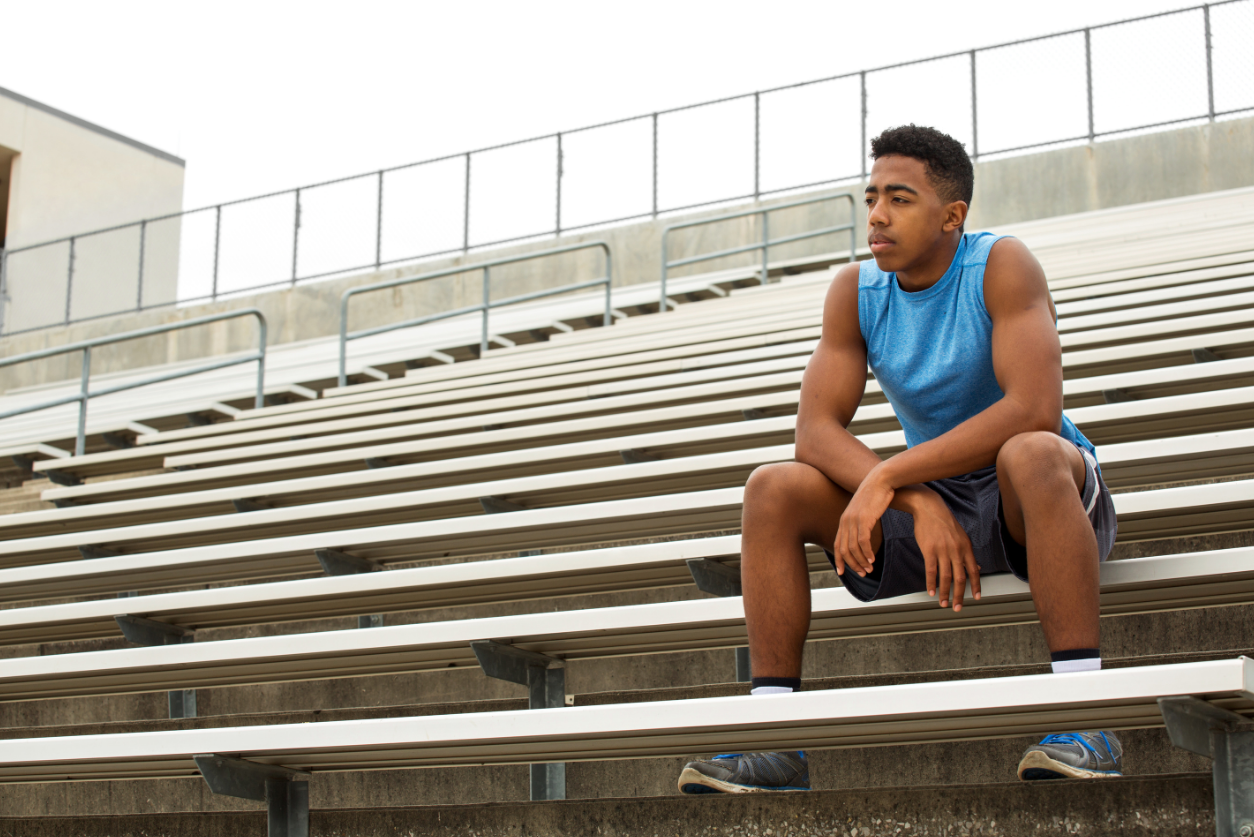Being a student athlete in high school is tough these days. Balancing schoolwork, practices, games, and social life can feel like a constant juggling act. If you’ve noticed your young athlete seems stressed, anxious, or withdrawn, you’re not alone.
Student athletes face unique pressures that can take a toll on their mental well-being. Launch Sports Performance understands the challenges young athletes face, and we’re here to equip you, the parent, with tools to support their mental health.
Demystifying the Pressure Cooker: Why Student Athletes Experience Stress
The world of competitive athletics can be demanding. From coaches’ expectations to academic pressures, student athletes navigate a pressure cooker environment. Here are some reasons why they might be feeling stressed:
- Performance Anxiety: The constant pressure to excel can lead to anxiety about practices, games, and even tryouts. Fear of failure or letting the team down can be overwhelming.
- Academic Demands: Juggling schoolwork with a busy athletic schedule can be stressful. Time management becomes crucial, and athletes often worry their grades might suffer in pursuit of athletic goals.
- Social Pressures: Balancing athletics with a social life can be tricky. Athletes may feel pressure to prioritize sports over hanging out with friends, leading to feelings of isolation. The pressure to appear “mentally tough” can feel overwhelming.
- Injury Fears: Injuries can sideline an athlete, jeopardizing their progress and potentially impacting their future in the sport. The fear of getting hurt can be a constant source of worry for your child, and for you.
- Body Image Concerns: Athletes are often bombarded with messages about ideal body types. This can lead to insecurities and unhealthy body image issues.
Recognizing the Signs: How to Spot Stress in Your Student Athlete
While every athlete expresses stress differently, some common signs can serve as red flags. Here’s what to watch for:
- Changes in Mood: Pay attention to sudden shifts in your child’s mood. They might become easily frustrated or irritable, even over minor things. Withdrawal from activities they used to enjoy, social isolation, or persistent sadness are also cause for concern. Remember, teenagers naturally experience mood swings, but a consistent change in their baseline behavior could be a sign of underlying stress.
- Sleep Issues: Trouble falling asleep, restless sleep leading to fatigue throughout the day, or excessive sleepiness can all indicate anxiety or depression. These sleep disruptions not only impact mood and energy levels but can also weaken the immune system and hinder athletic performance. If your child seems constantly tired despite getting enough sleep, or if they struggle to fall asleep at night, it’s worth addressing the issue.
- Changes in Appetite: Stress can manifest in changes in eating habits. Some athletes might lose their appetite entirely, skipping meals or picking at food. Others might turn to comfort foods or overeat, leading to unhealthy weight gain. Monitor your child’s eating patterns and address any drastic changes.
- Declining Performance: A drop in grades or athletic performance can sometimes be a sign of underlying mental health issues. Stress and anxiety can make it difficult to focus in school, leading to lower grades. Similarly, on the field, an athlete might experience decreased motivation, coordination problems, or a lack of focus during practice or games. If your child’s performance starts to suffer, consider if stress could be a contributing factor.
- Increased Physical Complaints: Headaches, stomachaches, and fatigue are common complaints among stressed individuals. While these symptoms can sometimes be caused by medical problems, they can also be stress-related. Pay attention to your child’s physical complaints, especially if they seem to occur more frequently during periods of high pressure or competition.
Remember, these are just some general signs to watch for. Every athlete is unique, so it’s important to be familiar with your child’s personality and typical behavior patterns. If you notice any significant changes or a combination of these signs, it’s crucial to have an open conversation with your child and explore potential solutions.
Beyond the Bench: How Parents Can Foster Mental Wellbeing
As a parent, you play a crucial role in your student athlete’s mental health. Here are some ways you can offer support:
- Open Communication: Create a safe space for your child to talk openly about their feelings, frustrations, and challenges. Listen actively without judgment and offer reassurance.
- Focus on the Journey, Not Just the Destination: Success isn’t just about winning or achieving perfect grades. Celebrate effort, dedication, and perseverance. Focus on enjoying the sport and the learning experience.
- Maintain a Healthy Lifestyle: Encourage healthy eating habits, regular sleep schedules, and physical activity outside of their sport. This promotes not only physical well-being but also emotional resilience.
- Set Boundaries: Time management is key. Help your child set realistic priorities, schedule time for studies, relaxation, and social activities.
- Normalize Seeking Help: Let your child know that seeking help for mental health challenges is a sign of strength, not weakness. Encourage them to talk to a school counselor, therapist, or trusted mentor.
Launch Sports Performance: More Than Just Physical Training
At Launch Sports Performance, we believe in a holistic approach to athlete development. We recognize the importance of mental well-being and offer resources to support young athletes. Our training programs integrate mental skills training alongside physical conditioning. We teach athletes techniques for stress management, goal setting, visualization, and positive self-talk.
Building Champions On and Off the Field:
By recognizing the signs of stress and providing strong support, you can help your student athlete navigate the challenges of competitive athletics. Remember, fostering mental well-being is just as important as physical training. Together, we can build physically and mentally strong athletes who approach challenges with confidence and resilience.

